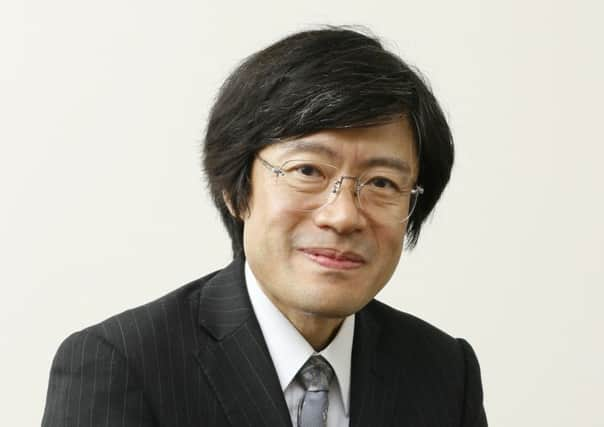Hajime Kitaoka: China, not Japan, upping Asia ante


In most cases, especially dealing with something serious, there is an “argument” and “counter-argument” at the same time. It is very rare that one side overwhelms the other. What is most important is that we have a chance to see both sides of the coin.
As a result of China’s global anti-Japan campaign, the matter of the Japanese prime minister’s visit to the Yasukuni shrine has already been discussed in many countries, including the UK. The exchange of arguments between the Japanese ambassador and the Chinese ambassador was reported at the beginning of the year.
Advertisement
Hide AdAdvertisement
Hide AdI wish to briefly outline some facts that should contribute to a deeper understanding and fair evaluation by the readers.
Firstly, the Japanese prime minister’s recent visit to the Yasukuni shrine was to neither pay homage to Class-A war criminals, nor to praise militarism.
At the Yasukuni shrine, approximately 2.5 million souls of those who made ultimate sacrifices for their nation since 1853 are enshrined, regardless of their gender or rank. Upon his recent visit there, prime minister Shinzo Abe issued a statement entitled “Pledge For Everlasting Peace”. He said his visit was made to pay his respects and pray for the souls of the war dead and to renew the pledge that Japan shall never again wage any war. For this reason, prime minister Abe also visited Chinreisha, a remembrance memorial, to pray for the souls of all those, irrespective of nationality, who lost their lives in war, but who are not enshrined at Yasukuni.
The Japanese government has accepted the judgments of the International Military Tribunal for the Far East by ratifying the San Francisco Peace Treaty. Mr Abe has himself clearly defined this position and the Japanese government has never ever justified Class-A war criminals or militarism.
Secondly, China’s argument of criticising Japan’s post-Second World War path to peace is unfounded, and is an argument that runs completely counter to the facts.
Considering what is going on in the present-day East Asia region, it is unnecessary to point out which country is increasing tensions in the region by advancing military build-up without transparency and trying to change the existing order unilaterally by coercion or threat of force.
On the contrary, in the post-Second World War world, Japan has consistently contributed to global peace, prosperity, and the promotion of freedom, human rights and rule of law. In the East Asia region in particular, Japan has contributed tirelessly to protect freedom and democracy and promote regional stability and development.
I would like to add that China has even expressed its positive evaluation of Japan’s post-war record as a peace-loving nation in an official statement in 2008, after more than 60 visits to Yasukuni had been made by Japanese prime ministers since the end of the war. Has Japan suddenly turned militaristic within five years? Certainly not. Furthermore, the government of Japan has consistently made clear that it squarely faces history, and expresses deep remorse and heartfelt apology. This stance is firmly upheld under the Abe government.
Advertisement
Hide AdAdvertisement
Hide AdNor is it valid to make comparisons between Asia and Europe when the circumstances differ. The historical backgrounds of Germany and Japan differ completely, in terms of what happened during the Second World War and under what kind of post-war settlement they found themselves engaged in. Japan and Germany have dealt with the post-war settlement by taking different approaches.
It is not, therefore, appropriate to make a simple comparison and evaluation of the measures taken by them. Reconciliation in Europe has been accomplished through dialogues between Germany and other countries including the United Kingdom, France and Germany’s other neighbours, all of whom played a positive role in this regard and worked closely with Germany for the integration of Europe.
China may well have different views. This is why the two countries should meet and seek mutual understanding. Although Mr Abe is consistently calling for dialogue between the leaders, China has so far refused the offer.
I sincerely hope that China will move forward, rather than keep invoking the ghost of “militarism” of seven decades ago, which no longer exists.
• Hajime Kitaoka is Consul-General of Japan in Edinburgh